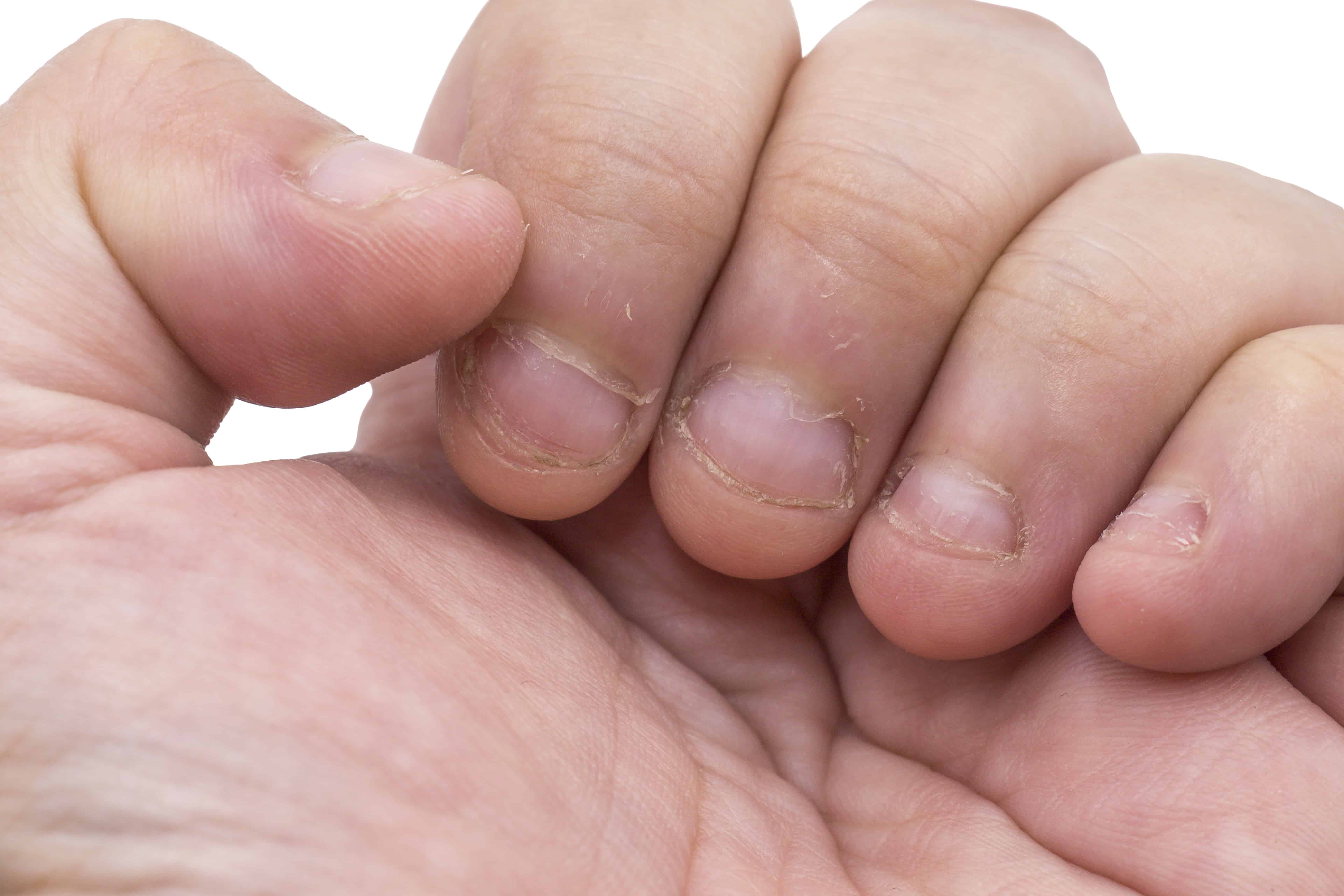Onychophagia is the medical term for chronic nail biting. While many men, women and children might bite and pick their nails from time to time, Onychophagia is the ongoing and chronic biting of nails, tends to be a long term habit and may be very difficult to stop. It can also lead to a number of side effects including infections of the fingers and mouth as well as serious and long term problems with teeth and the root of the teeth.
Phonetic Onychophagia Pronunciation
If you are a chronic nail biter and want to go to your doctor either for help or to ask for a referral to a professional who specializes in nail biting and other hard-to-break habits, you can either tell them you’re a chronic nail biter or that you feel that you suffer from Onychophagia. That’s the medical term for chronic nail biting and it’s pronounced as follows:
On-I-Koh-Fay-Jee-Uh
You can say On-I-Koh-Fay-Jee-Uh or On-I-Koh-Fay-Juh similar to the two ways you can pronounce the ending of other words that end with “gia” like nostalgia or quadriplegia. Typically for words that end with -gia in English, we pronounce it “juh” rather than “jia” but both work.
Onychophagia Definition
Onychophagia refers to the chronic biting of nails. Onychophagia is considered a body-focused repetitive behavior (BFRB) in the same vein as hair pulling or skin picking. In fact some nail biters (myself included) tend to pick at nails more than bite them.
Chronic onychophagia is believed to affect between 20% and 30% of the general population but even that range isn’t universally agreed upon. Some suggest that the number may be as high as 44%. Onychophagia often stops by the time people reach adolescence and even those who continue, often quit by age 30. But many adults continue to bite their nails in adulthood as it can be a very difficult habit to stop completely.
Onychophagia And Cuticle Biting
The nail cuticle is a layer of clear skin located at the very top of the nail where it emerges from the nail bed closest to the first knuckle on your finger. Some chronic nail biters chew and pick their nails to the point where cuticles get damaged and bloodied in the extreme.
While I’ve never chewed my cuticle, picking at your nails can damage and tear the cuticle even if you don’t mean to. This can lead to bleeding and infections.
Chronic Onychophagia
While a significant number of people both young and old may bite or pick their nails from time to time, chronic Onychophagia can become problematic because of the severe side effects that may occur when it happens repeatedly. These include:
- Finger infections and damage
- Mouth infections and damage
- Bleeding from the finger and nail areas
- Teeth and root problems
- Shame, embarrassment and more serious mental concerns
If you have orthodontic braces, you also increase the risk of damage to your teeth and the root of your teeth while also potentially harming and increasing the orthodontic treatment you may require.
Is Onychophagia Considered OCD?
OCD refers to Obsessive Compulsive Disorder. Beginning in 2013, the American Psychiatric Association (APA) began to recognize nail biting as a form of OCD in their Diagnostic and Statistical Manual (DSM), Fifth Edition. The DSM-5 also began to recognize that nail biting would be classified under “obsessive-compulsive and related disorders” as opposed to “not otherwise classified” as it was previously defined.
How To Stop Onychophagia
Please visit the article called How To Stop Nail Biting In Adults for strategies to stop nail biting. If you have a child who bites their nails, How To Stop A Nail Biting Child offers more specific advice for children since their reasons for biting nails may be different and the approach will need to be adjusted, too. It also discusses some personal experience with nail biting which I’ve been doing since I was a child.
Recent Posts
Stimming, short for self-stimulatory behavior, refers to repetitive or rhythmic movements or sounds that some individuals with autism or other neurodevelopmental conditions engage in. It is often...
Nail biting and nail picking is a common habit that affects many people, especially during times of stress or boredom. While it may seem like a harmless habit, it can actually have negative...


